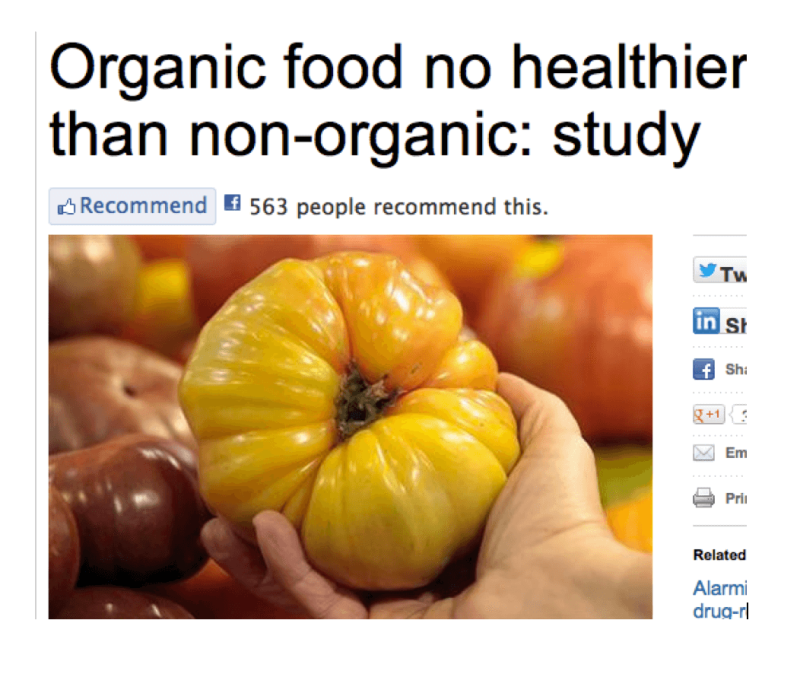Surveys find that people go organic because they believe it produces food that’s tastier, more nutritious and safer.
. . . .
[S]tudies have similarly found that slapping an organic label over food, even if it’s not organic, can make people think it tastes better.Generally speaking though, research has found that growing a crop organically or conventionally doesn’t consistently affect its taste.
. . . . In 2012, researchers at Stanford analysed scores of studies on the nutritional value of organics, and concluded that they “did not find significant differences in the vitamin content of organic and conventional.”
. . . .
The best study that we have on [conventional vs. organic and cancer] comes from Kathryn Bradbury and . . . colleagues. . . .
When Kathryn looked at the overall cancer rate – for 16 of the most common cancers types – she found no difference in the overall cancer rate between women who ate organic and those who didn’t.
. . . .
So, while there is still much we don’t know about the effect of tiny traces of pesticides in our food, the current science doesn’t support some organic food’s big claims.
The GLP aggregated and excerpted this blog/article to reflect the diversity of news, opinion and analysis. Read full, original post: Science vs organic food: Is it really any better for you?































